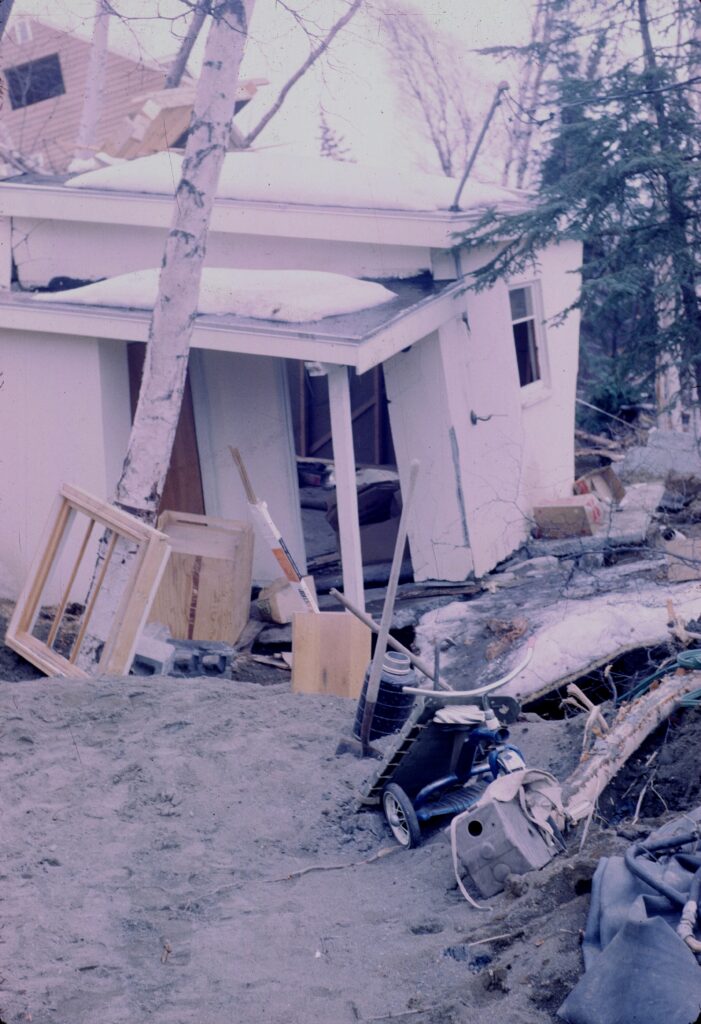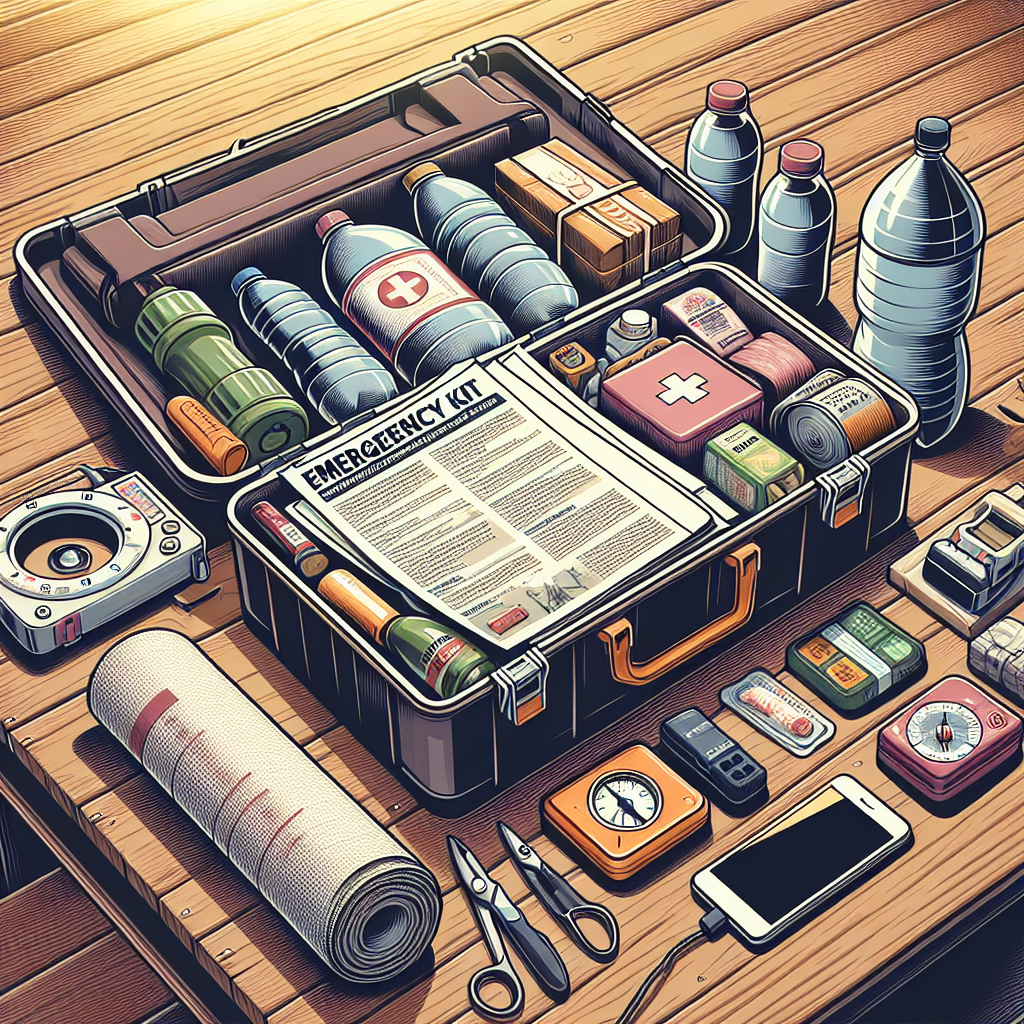Hurricanes can be unpredictable and devastating, but with the right preparation, you can ensure the safety of yourself and your loved ones. In this article, we will provide you with essential tips and guidelines from the Centers for Disease Control and Prevention (CDC) on how to prepare for a hurricane. By following these recommendations, you can minimize the potential risks and have the peace of mind knowing that you are ready to face any storm that comes your way. So, let’s get started and arm ourselves with the knowledge and tools necessary for hurricane preparedness.
Understanding Hurricanes
Hurricanes are powerful and destructive tropical storms that can cause significant damage to both property and human lives. Understanding the nature of hurricanes is crucial for being prepared and staying safe during these intense weather events.
Definition and Categories
A hurricane is a tropical cyclone that forms over warm ocean waters, typically between June and November. It consists of a low-pressure center, strong winds, and heavy rain. Hurricanes are categorized based on their wind speed using the Saffir-Simpson Hurricane Wind Scale, which has five categories ranging from Category 1 (weakest) to Category 5 (strongest).
Anatomy of a Hurricane
A hurricane consists of several key components. The eye is the center of the hurricane, characterized by calm conditions and clear skies. Surrounding the eye is the eyewall, where the strongest winds and heaviest rainfall occur. Outer rainbands are spiraling bands of clouds and thunderstorms that extend from the eyewall. Understanding the anatomy of a hurricane helps meteorologists track and predict its path and intensity.
Potential Dangers
Hurricanes pose numerous dangers that can impact both individuals and communities. High winds can cause extensive damage to homes, buildings, and infrastructure. Heavy rainfall often leads to widespread flooding, which can be lethal and destructive. Storm surge, a rise in ocean water level, can cause coastal flooding and erosion. Tornadoes, lightning, and landslides are also associated with hurricanes. Being aware of the potential dangers allows individuals to take necessary precautions and stay safe.
Preparing Your Home
Preparing your home ahead of time is crucial to minimize damage and keep your family safe during a hurricane.
Inspecting and Reinforcing Your Roof
Inspecting your roof for any existing damage and reinforcing it is vital to prevent leaks and structural failures during a hurricane. Replace or repair any loose or missing shingles. Ensure that all roof vents and chimney caps are securely installed. Consider installing hurricane straps or clips to reinforce the roof’s connection to the walls.
Securing Windows and Doors
Secure windows and doors to protect against strong winds and flying debris. Install storm shutters or use plywood to cover windows. Reinforce garage doors to prevent them from collapsing under pressure. Ensure that all doors have solid deadbolt locks and consider adding additional bracing to strengthen them.
Clearing Gutters and Downspouts
Clearing gutters and downspouts is essential to maintain proper drainage and prevent water from backing up and entering your home. Remove any debris, leaves, or branches from the gutters to ensure water can flow freely. Consider installing gutter guards to minimize clogging and reduce maintenance.
Anchor and Secure Outdoor Items
Anchor and secure outdoor items such as patio furniture, grills, gardening tools, and trash cans. These objects can become dangerous projectiles in high winds, causing damage to your property or neighboring homes. Use straps or cables to secure larger items and bring smaller items indoors or store them in a shed or garage.
Stocking Up on Supplies
Having an adequate supply of essential items is crucial for your safety and well-being during and after a hurricane.
Essential Emergency Kit Items
Assemble an emergency kit that includes essential items needed during a hurricane. This kit should include:
- Flashlights and extra batteries
- NOAA Weather Radio
- Whistle for signaling
- Multipurpose tool
- Dust masks and plastic sheeting
- Moist towelettes and garbage bags
- Cell phone with chargers
Food and Water
Stock up on non-perishable food items that require no cooking or refrigeration. Examples include canned goods, energy bars, and dried fruits. Aim to have a three-day supply of food per person. Additionally, have one gallon of water per person per day for at least three days. Fill bathtubs and containers with water for sanitation purposes.
Medication and First Aid
Ensure an ample supply of prescription medications for each family member. Include a comprehensive first aid kit with bandages, antiseptics, medications for pain relief, and any necessary medical supplies. Familiarize yourself with basic first aid procedures and keep a manual or guide handy.
Personal Hygiene and Sanitation
Maintaining personal hygiene during a hurricane can be challenging. Pack personal hygiene items such as toilet paper, hand sanitizer, soap, toothbrushes, and toothpaste. Include any necessary feminine hygiene products, diapers, and wipes if applicable. Prepare for limited access to running water by having waterless hand sanitizer and wet wipes.
Creating an Emergency Plan
Having a well-thought-out emergency plan ensures that everyone in your household knows what to do during a hurricane.
Family Communication Plan
Develop a family communication plan in case you are separated during a hurricane. Determine a central contact person who can relay messages between family members. Share emergency contact information with everyone and establish protocols for updating and checking in with each other.
Evacuation Plan
Create an evacuation plan that includes multiple evacuation routes and destinations. Familiarize yourself with evacuation zones and the closest designated shelters. Ensure that everyone knows the plan and understands the urgency and importance of following evacuation orders when issued.
Identifying Local Shelters and Routes
Research and identify local shelters in your area. Know their locations and understand any specific requirements or restrictions. Map out primary and alternate routes to reach these shelters. Consider the transportation needs of family members with disabilities or special medical conditions.
Emergency Contacts
Compile a list of emergency contacts, including local authorities, utility companies, and medical providers. Keep this list easily accessible and share it with all family members. Include phone numbers for your insurance company and important financial institutions in case you need to contact them after the storm.

Protecting Important Documents
Safeguarding important documents is crucial to ensure their accessibility and to facilitate any necessary financial or legal transactions following a hurricane.
Organizing and Safeguarding Documents
Gather all important documents such as identification papers, birth certificates, passports, insurance policies, wills, and property deeds. Store them in a waterproof and portable container or seal them in a plastic bag. Consider organizing these documents in labeled folders or binders for easy retrieval.
Creating Digital Copies
Make digital copies of all important documents and store them securely in a password-protected cloud storage or an external hard drive. This ensures that even if the physical copies are damaged or lost, you have access to the necessary information.
Consider Safe Deposit Box
For added protection, consider storing originals or copies of important documents in a safe deposit box at your local bank. This provides an additional layer of security in case your home sustains significant damage during a hurricane.
Managing Utilities
Knowing how to manage utilities during a hurricane is essential for safety and preventing further damage.
Know How to Shut Off Utilities
Familiarize yourself with how to shut off the main water, gas, and electricity supply to your home. It is important to know and practice these procedures beforehand to avoid any confusion during an emergency. Keep the necessary tools, such as a wrench or pliers, readily available.
Backup Power Source
Invest in a backup power source, such as a generator, to maintain essential functions during a power outage. Follow all safety precautions and guidelines when operating a generator. Never use a generator indoors or in enclosed spaces, as it can lead to carbon monoxide poisoning.
Secure Gasoline and Propane Tanks
If you have propane tanks for heating or cooking, ensure they are securely anchored to prevent tipping or leaks. Store gasoline for generators and vehicles in approved containers in a well-ventilated area away from living spaces. Follow proper safety guidelines for handling and storing flammable materials.

Preparing Your Vehicle
Your vehicle should be ready for a potential evacuation or emergency situation during a hurricane.
Check and Maintain Your Vehicle
Regularly inspect your vehicle for any maintenance issues. Check the tires, brakes, fluid levels, and lights. Ensure that the windshield wipers are in good condition and all necessary fluids are topped up. Have your vehicle serviced if needed to ensure it’s in optimal condition.
Fuel Up and Have an Emergency Kit
Keep your gas tank at least half full at all times during hurricane season. In case of an evacuation, having a full tank of gas will ensure you have enough fuel to reach a safe destination. Additionally, keep an emergency kit specific to your vehicle, including a spare tire, car jack, jumper cables, and a roadside emergency kit.
Evacuation Plans
Understand the recommended evacuation routes and have multiple destinations in mind. Plan for potential traffic congestion and allow ample time to reach your chosen evacuation location. Stay updated with the latest evacuation orders and follow the instructions provided by local authorities.
Protecting Your Pets
Don’t forget to include your furry friends in your hurricane preparedness plans.
Create a Pet Emergency Kit
Assemble a pet emergency kit containing essential supplies for your pets. This should include enough food, water, medications, and any necessary items for their comfort. Have spare leashes, collars, and identification tags. Consider including their favorite toys or blankets to help reduce stress during the storm.
Identify Safe Spaces
Designate safe spaces within your home where your pets can take shelter. Choose a location away from windows and doors, such as a basement or an interior room. Make the space comfortable by providing bedding and familiar items. Practice getting your pets accustomed to these areas beforehand.
Ensure Proper Identification
Make sure your pets are properly identified with tags displaying your contact information. Consider microchipping them as an added security measure. Keep a recent photo of your pets in case they go missing during the chaos of a hurricane. Familiarize yourself with local pet-friendly shelters and accommodations in case you need to evacuate with your pets.

Secure Financial and Insurance Documents
Protecting your financial and insurance documents ensures a smoother recovery process after a hurricane.
Gather and Protect Important Documents
Retrieve and safeguard financial records, including bank statements, investment account information, and tax records. Collect insurance policies, including homeowners, renters, and flood insurance, and make sure they are up to date. Place these documents in a waterproof container or a safe location away from potential water damage.
Review Insurance Coverage
Review your insurance coverage to ensure it adequately protects your property and possessions. Understand your deductibles, coverage limits, and exclusions. Consider purchasing flood insurance, as standard homeowner’s insurance typically does not cover flood-related damages. Consult with your insurance provider to assess your specific needs.
Flood Insurance Consideration
Flooding is a common and destructive consequence of hurricanes. If you live in an area prone to flooding, consider purchasing flood insurance through the National Flood Insurance Program (NFIP). Remember, there is a 30-day waiting period from the date of purchase for flood insurance to go into effect, so plan accordingly.
Staying Informed and Alert
Staying informed and alert during a hurricane is crucial for your safety and well-being.
Monitor Local News and Weather Updates
Stay tuned to local news outlets for the latest updates and instructions from emergency management officials. Information regarding the storm’s path, intensity, and potential impacts will be shared regularly. Pay attention to weather bulletins, watches, warnings, and evacuation orders.
Sign Up for Emergency Alerts
Register for emergency alert systems available in your area. These may include text messages, phone calls, or push notifications. They provide timely and critical information directly to your phone, ensuring you are aware of any changes or emergency situations quickly.
Stay Tuned to CDC Guidance
The Centers for Disease Control and Prevention (CDC) provide valuable guidance before, during, and after a hurricane. Stay informed about health and safety recommendations regarding water quality, food safety, and personal protection. Following CDC guidelines can help ensure your well-being and minimize the risk of illness or injury during and after a hurricane.
By taking the necessary steps to understand hurricanes, prepare your home, stock up on supplies, create an emergency plan, secure important documents, manage utilities, prepare your vehicle, protect your pets, secure financial and insurance documents, and stay informed and alert, you can better navigate and withstand the challenges posed by hurricanes. Remember, early preparation is key to ensuring the safety and well-being of yourself, your loved ones, and your property. Stay safe, stay prepared, and be ready to act when necessary.







